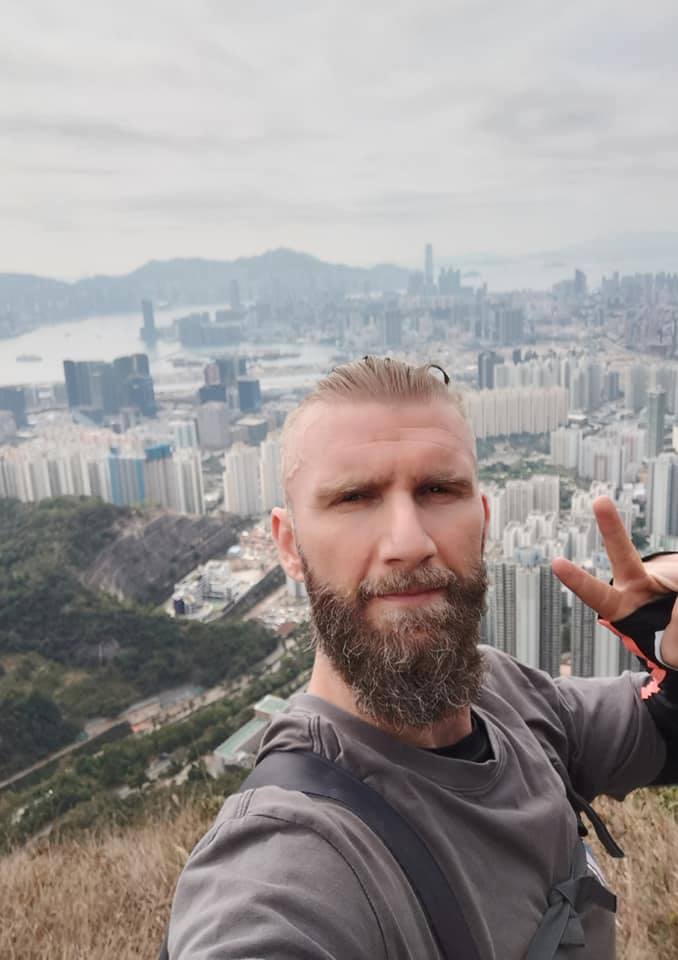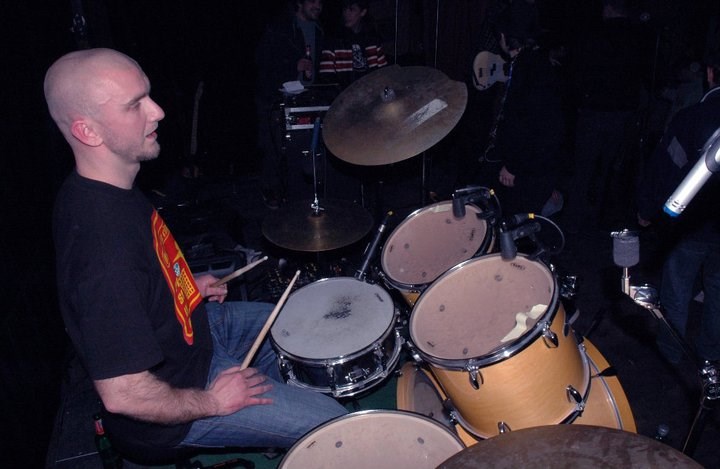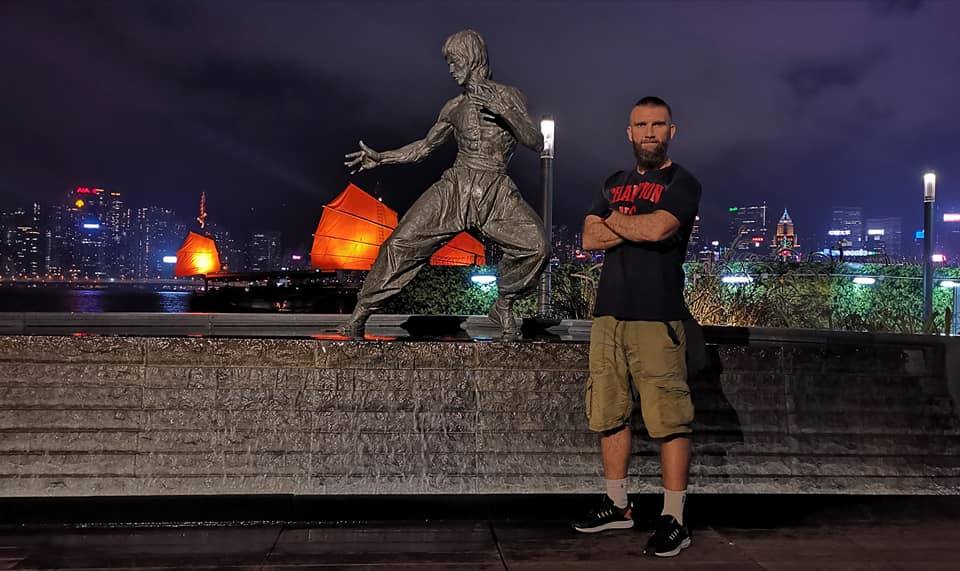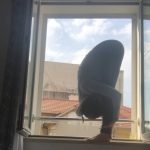April 6, 2020 – With as many Croatians living abroad as in the Homeland, what are the diaspora experiences of self-isolation? In the second of a new series, Corona Voices in the Croatian Diaspora, Goran Krolo on the current realities in Guangzhou, Guangdong province, China.
Last week TCN started a feature series called Foreigner Self-Isolation In Croatia: Do You Feel Safer? I can honestly say we have never had such a response or so many incredible contributions. The countries of origin of these expats in Croatia literally from all over the world. So far we have had submissions from expats from Romania, USA, Ireland, UK, Mexico, Argentina, Spain, Singapore, Holland, Canada, India, Hong Kong, Venezuela, Latvia, China, Honduras, Hungary, Moldova, New Zealand and Germany. You can see all their stories here.
Given the success of the series (still going strong) and large interest, it made sense to expand it to look at this from another angle – how Croatians abroad are coping where they are. If you would like to contribute your story to Corona Voices in the Croatian Diaspora, please find the submission guidelines below. And now, the view from China.
Goran Krolo is a physiotheropist and drummer from Vinkovci in Guangzhou, Guangdong province, China, working with a women’s’ Premier league football club.

Firstly, how are you? Are you alone/with someone? Tell us a little about your situation and sanity levels.
I am fine but alone in China for two years now. My situation is relatively good as I work in a football base which is pretty much isolated from the rest of the town due to its location so it hasn’t been such a critical situation
When did you realise that corona was going to be a big issue?
Guangdong province where I am is the second most affected by Covid-19 in China but that is nothing compared to what has happened in Wuhan. At the end of January, I had a holiday and went to Hong Kong for the Chinese New Year for a week, and there I didn’t feel any threat, but when I returned I saw differences that showed me that the situation was very serious, like the railway station in Hong Kong being totally closed after I left. At the railway station, I saw medical staff monitoring the temperature of people arriving, taking swabs and even blood, especially of those who had been in mainland China in the last three weeks. I was forced to be tested.
Arriving back in Guangzhou, which is a huge city of over 13 million, when I came out of the railway station, there wasn’t a single person to be seen. I was totally alone like the last survivor of some apocalypse film. I realised then that this was something very serious indeed.
When did you realise that corona was going to be a big issue in your location in particular?
On my return to the Football complex, I noticed that some of the players had not been allowed to return due to health problems. Those who tested negative returned to the base, and from that moment on and up to now, we have been in total lockdown and unable to leave the complex. We from the medical staff are allowed to leave, so it is easier for us and if we do get to leave, masks are absolutely required. You are not allowed in any building without one. At the entrance to any building or transport, people are measured for temperature.
Tell us about your day. Do you/can you leave your apartment?
As I said we can move about but for the first few weeks it was only in the neighbouhood where we lived. There were checkpoints at every area which were manned 24 hours a day and travel between the various suburbs was not permitted at all. This has been relaxed somewhat now.
At first, most shops were closed and we were not allowed to move around the streets or we would be forced to return home. Now most shops are open again and I am even able to visit restaurants once more. Prior to that those restaurants that were still working only allowed delivery.I am still doing my job but with stricter sanitary control.
How are the authorities doing at handling the situation?
China is an authoritarian state and what the authorities say, the people comply. In Wuhan, the citizens were physically locked in their homes and one person was allowed out each week to buy supplies. Elsewhere private citizens organised neighbourhood watches to control the population.
You obviously keep an eye on your homeland. What is your impression of the way Croatia is dealing with the crisis?
Regarding the situation at home, which seems to be good, but I think that it is more due to good luck than the fruit of good organization. People should follow the instructions given them by the authorities, it has worked for China.
Compare and contrast the responses of Croatia and where you are. Who is doing what better?
You cannot compare China with Croatia. In Croatia, the people are given strong advisories, but in Chima, if you do not follow the restrictions, you go to jail.
One thing you have learned about yourself, and one thing you have learned about others during this crisis.
I am not in self-isolation because of this virus, I have been in self-isolation here for two years, and I recommend that everyone should try it, as you find out a lot about yourself in the process. I have books, music and the internet, that’s it.
If you could be self-isolating in Croatia, where would it be, and why?
I would lock myself away with a nice girl and then it could potentially end up being more fun!
Thanks, Goran. Stay safe and see you on the other side. You can see all the stories in both this diaspora series, and the one on expats in Croatia on this link.
TCN is starting a new feature series on Croatian diaspora experiences of sitting out COVID-19 abroad and comparing your experiences to the situation in Croatia. If you would like to contribute, the questions are below. Please also include a para about yourself and where you are from, and a link to your website if you would like. Please also send 3-4 photos minimum to news@total-croatia-news.com Subject Corona Diaspora
If you would be interested to record a video version for our partners www.rplus.video please let us know in the email. Thanks and stay safe.
Self-Isolation Voices from the Diaspora
Firstly, how are you? Are you alone/with someone? Tell us a little about your situation and sanity levels.
When did you realise that corona was going to be a big issue?
When did you realise that corona was going to be a big issue in New York in particular?
Give us a timeline on when and how life changed.
Tell us about your day. Do you/can you leave your apartment?
How are the authorities doing at handling the situation?
You obviously keep an eye on your homeland. What is your impression of the way Croatia is dealing with the crisis?
Compare and contrast the responses of Croatia and USA. Who is doing what better?
What about official communications from the authorities, compared to your home country?
What’s the one thing you wish you had taken with you into self-isolation?
One thing you have learned about yourself, and one thing you have learned about others during this crisis.
If you could be self-isolating in Croatia, where would it be, and why?
TCN has recently become a partner in Robert Tomic Zuber’s new R+ video channel, initially telling stories about corona experiences. You can see the first TCN contribution from this morning, my video from Jelsa talking about the realities of running a news portal in the corona era below. If you would like to also submit a video interview, please find Robert’s guidelines below
VIDEO RECORDING GUIDE
The video footage should be recorded so that the cell phone is turned horizontally (landscape mode).
There are several rules for television and video news:- length is not a virtue- a picture speaks more than a thousand words
In short, this would mean that your story should not last more than 90 seconds and that everything you say in the report should be shown by video (for example, if you talk about empty streets, we should see those empty streets, etc.).
How to do it with your cell phone? First, use a selfie camera to record yourself telling your story for about a minute and a half. Ideally, it would be taken in the exterior, except in situations where you are reporting on things in the interior (quarantine, hospital, self-isolation, etc.). Also, when shooting, move freely, make sure everything is not static.
After you have recorded your report, you should capture footage that will tell your story with a picture, such as an earlier example with empty streets.
One of the basic rules of TV journalism is that the story is told in the same way as a journalist with his text. Therefore, we ask you for additional effort. Because we work in a very specific situation, sometimes you may not be able to capture footage for each sentence of the report. In this case, record the details on the streets: people walking, the main features of the city where you live, inscriptions on the windows related to the virus, etc.
The same rules apply if you are shooting a story from your apartment, self-isolation, quarantine. We also need you to capture footage that describes your story.
When shooting frames to cover your reports, it is important that you change the angle of the shot (in other words, shoot that empty street from several angles). Also, when shooting a detail, count at least five seconds before removing the camera to another detail.
The material should be about 5 minutes long (90 seconds of your report + frames to cover your story).
After recording everything, send us to Zagreb, preferably via WeTransfer to rplus.video@gmail.com












